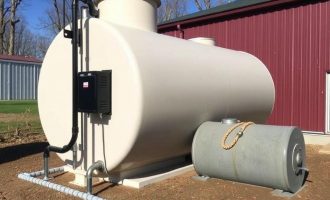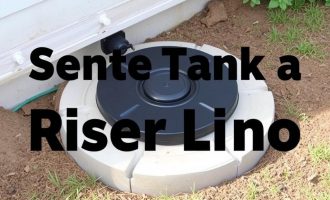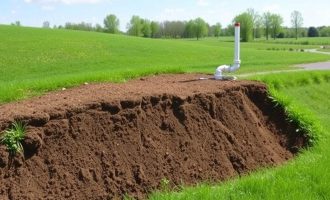Managing household waste properly is essential to maintaining a healthy septic system, and one area that often gets overlooked is how to dispose of grease. Grease might seem harmless when you wash it down the drain, but it can cause serious problems for your septic system if not handled correctly. If you’re wondering how to dispose of grease with a septic system or want to learn the best practices to protect your septic tank, this comprehensive guide is for you. We’ll explore why grease disposal matters, what methods work best, common mistakes to avoid, and practical tips to keep your septic system functioning smoothly for years.
- Why Proper Grease Disposal Matters for Septic Systems
- Common Sources of Grease That Affect Septic Systems
- How to Dispose of Grease with a Septic System: Best Practices
- 1. Let Grease Cool and Solidify
- 2. Scrape Grease Into Trash or Compost
- 3. Use a Grease Disposal Container
- 4. Avoid Pouring Grease Down the Drain
- 5. Use Sink Strainers and Regular Maintenance
- Alternative Grease Disposal Methods
- What Happens If Grease Gets Into Your Septic System?
- Signs of Grease Problems in Septic Systems
- How to Fix a Grease Blockage in a Septic System
- Tips for Maintaining a Healthy Septic System That Handles Grease Responsibly
- How Regular Septic Tank Pumping Helps to Manage Grease
- Environmental Impact of Improper Grease Disposal
- Quick Reference: Do’s and Don’ts of Grease Disposal with a Septic System
- Additional Resources and Tools for Homeowners
- Conclusion
Why Proper Grease Disposal Matters for Septic Systems
Unlike municipal sewer systems that can often handle a wider range of household waste, septic systems rely entirely on natural processes to break down solids and liquids. When grease enters your septic system, it can cause blockages and interfere with the natural bacterial action responsible for breaking down organic material. This can lead to clogs in the pipes, an overwhelmed septic tank, and costly repairs or even system failure.
Grease is a type of fat that solidifies when cooled, turning from a liquid into a thick, sticky substance. This property makes it particularly dangerous when poured down kitchen drains connected to septic systems. Over time, the continued flushing of grease can create buildup in the pipes and tank, leading to greasy scum layers that hinder proper drainage and treatment of wastewater. Understanding the impact of grease on your septic system is the first step to better disposal practices.
Common Sources of Grease That Affect Septic Systems
Grease typically originates from cooking oils, animal fats, dairy products, and food scraps that contain fats. Here are some examples:
- Used cooking oils and frying grease
- Fatty meat trimmings
- Butter, margarine, and lard
- Cheese and creamy sauces
- Greasy food waste from plates or pans
Each of these sources contributes to the buildup of fats, oils, and grease (often abbreviated as FOG) within the septic system. When mixed with other household waste, FOG can solidify in the pipes or form a thick scum layer in the septic tank, causing inefficiency or blockages.
How to Dispose of Grease with a Septic System: Best Practices
So, how should you dispose of grease with a septic system to avoid problems? The key is to keep fats, oils, and grease out of your drains as much as possible. Here are some effective, easy-to-follow steps:
1. Let Grease Cool and Solidify
After cooking, allow the grease or oil to cool in the pan or container until it solidifies. Once hardened, it becomes easier to handle and less likely to spill when removing it.
2. Scrape Grease Into Trash or Compost
Use paper towels or spatulas to scrape solidified grease into a disposable container or a trash bag. If you compost, small amounts of grease or food scraps can be added, but avoid excessive fat buildup that could disrupt compost balance. Avoid rinsing these scraps into the sink.
3. Use a Grease Disposal Container
Some households benefit from keeping a dedicated grease container, such as a can or jar, where cooking oils and grease are collected and stored. When full, you can dispose of it in the trash or take it to a local recycling or disposal center that accepts grease.
4. Avoid Pouring Grease Down the Drain
Never pour hot or cooled grease down kitchen drains, even if you have a garbage disposal. While garbage disposals can grind food waste, they do not break down fats and can contribute to grease buildup in your septic system.
5. Use Sink Strainers and Regular Maintenance
Install a sink strainer or grease trap to catch food scraps and prevent grease from entering your drains. Regularly clean these traps and perform routine septic tank maintenance to keep the system working efficiently.
Alternative Grease Disposal Methods
Aside from the basic practices above, some communities offer specialized services or disposal options designed for grease. Here are some alternatives that you can explore:
| Grease Disposal Method | Description | Pros | Cons |
|---|---|---|---|
| Local Recycling Centers | Drop off used cooking oils and grease at centers that recycle or process grease into biofuel. | Environmentally friendly; keeps grease out of septic and sewer systems. | Requires transportation; may not be available everywhere. |
| Grease Traps for Homes | Install a domestic grease trap to capture fats and oils before they enter the septic system. | Prevents grease buildup; easy to clean. | Initial cost; needs regular cleaning. |
| Composting Small Amounts of Grease | Add small quantities of food scraps containing fats to compost piles in balance with other materials. | Reduces waste; enriches compost. | Excessive grease can attract pests and slow composting. |
What Happens If Grease Gets Into Your Septic System?
Despite your best efforts, grease might still end up in your septic system occasionally. It helps to know what signs to watch out for and steps to take if you suspect a grease buildup is causing issues.
Signs of Grease Problems in Septic Systems
- Slow drains or backups: If sinks or toilets are slow to drain, grease buildup may be partially blocking pipes.
- Foul odors: Grease can create a thick scum layer that traps gases and causes unpleasant smells near your drain field or septic tank.
- Septic tank overflow: Excess grease slows breakdown of solids, which could cause the tank to fill quickly and overflow.
- Pooling water near drain field: A clogged drain field may show signs of saturated soil or surface water caused by poor filtration.
How to Fix a Grease Blockage in a Septic System
If you notice any of the above symptoms, there are steps you can take:
- Call a professional septic service: Septic tank pumping and inspection can often solve grease clogs by removing the scum and sludge.
- Use bacterial additives carefully: Some septic treatments contain enzymes and bacteria designed to break down grease and fats, but results vary.
- Avoid further grease disposal down drains: Stop immediately to prevent worsening the problem.
- Do regular maintenance: Have your tank inspected and pumped every 3-5 years depending on usage and tank size.
Tips for Maintaining a Healthy Septic System That Handles Grease Responsibly
Keeping your septic system in tip-top shape involves a combination of correct disposal habits and regular care. Here are some practical tips to follow:
- Establish a grease disposal routine: Make sure every household member understands why grease shouldn’t go down the drain and how to dispose of it properly.
- Install strainers and grease traps: These devices catch grease and food particles before they enter plumbing.
- Schedule regular septic inspections: Early detection of grease buildup can save you from expensive repairs.
- Avoid harsh chemical cleaners: Chemicals may disrupt the bacterial balance that helps your septic system process waste.
- Be mindful of food waste: Compost non-greasy food scraps and dispose of grease thoughtfully to reduce pressure on your septic tank.
How Regular Septic Tank Pumping Helps to Manage Grease
Proper septic tank pumping removes solids and scum and prevents buildup that impedes system function. Grease contributes significantly to the scum layer in your tank, so pumping helps eliminate this grease-laden material that can clog your system if left untreated. Experts recommend routine pumping every 3-5 years, but this can vary depending on your household size, water usage, and your septic tank’s size.
Environmental Impact of Improper Grease Disposal
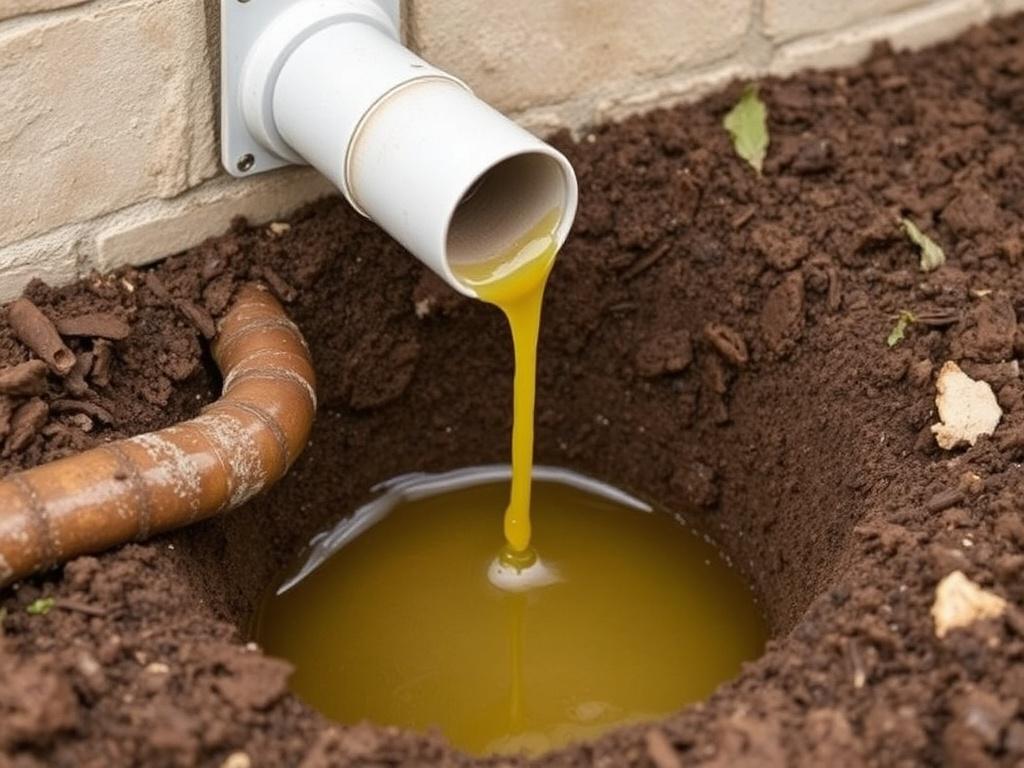
Besides damaging your septic system, improper grease disposal can have broader environmental consequences. When grease and fats enter the environment through leaky septic systems or overflow, it can pollute soil and water. This not only affects local wildlife but can also contaminate groundwater sources. Grease that clogs sewer lines may cause untreated sewage to overflow, creating health hazards and costly cleanup efforts.
By adhering to proper grease disposal methods, you not only protect your septic system but also contribute to environmental health and sustainability.
Quick Reference: Do’s and Don’ts of Grease Disposal with a Septic System

| Do’s | Don’ts |
|---|---|
| Do let grease cool and solidify before disposal. | Don’t pour hot or cold grease down the drain. |
| Do scrape grease into the trash or a collection container. | Don’t rely on garbage disposals to handle grease. |
| Do use strainers or grease traps in your sink. | Don’t ignore slow drains or foul odors as signs of grease buildup. |
| Do schedule regular septic tank inspections and pumping. | Don’t use harsh chemical drain cleaners that kill beneficial bacteria. |
| Do explore local grease recycling options if available. | Don’t dispose of large amounts of grease in compost piles. |
Additional Resources and Tools for Homeowners
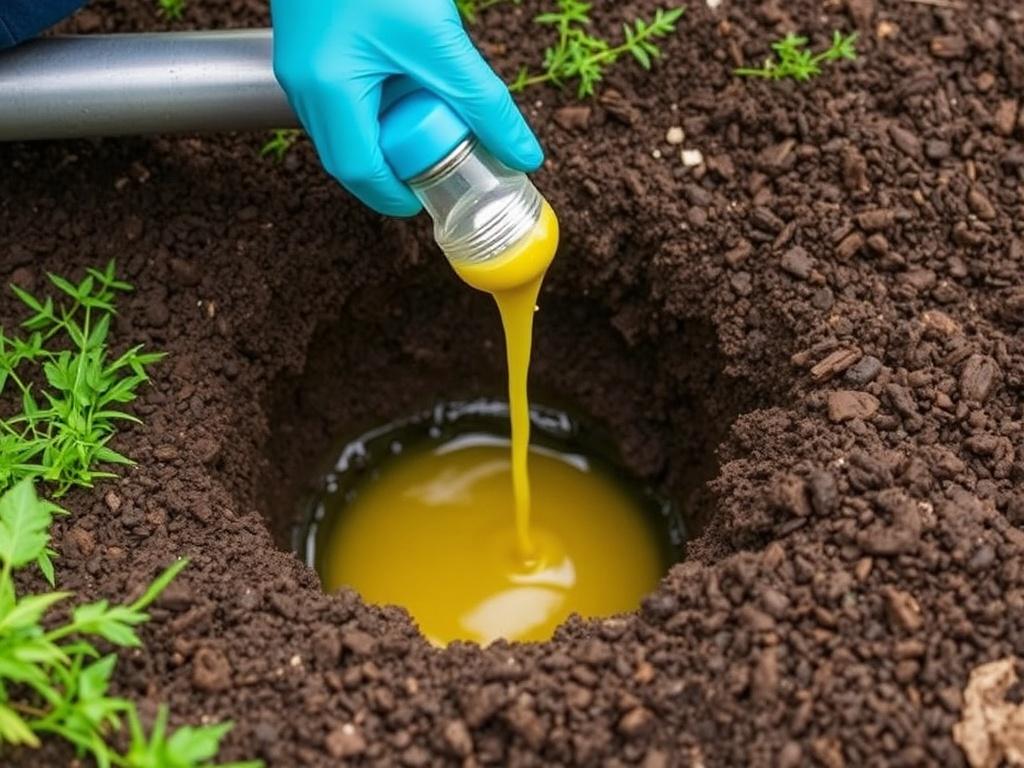
If you want to learn more about how to dispose of grease with a septic system or need help with maintenance, many resources and tools can assist you:
- Septic system professionals: Certified septic inspectors and service providers offer pumping, inspection, and repair services.
- Local waste management authorities: Some municipalities offer grease recycling or disposal programs.
- Educational websites: Look for guides from environmental agencies or plumbing organizations.
- Home grease collection kits: Available online or at home stores for convenient grease disposal.
Conclusion
Proper grease disposal is crucial when you have a septic system. By understanding why grease causes problems and adopting practical habits, such as letting grease cool, scraping it into the trash, and avoiding pouring it down drains, you can protect your septic system from costly damage. Utilize tools like grease traps and schedule regular septic maintenance to keep your system running efficiently. Remember that responsible disposal not only safeguards your home but also benefits the environment. With awareness and a little effort, you can manage grease effectively and enjoy a healthy, trouble-free septic system for years to come.
Помогла вам статья?


